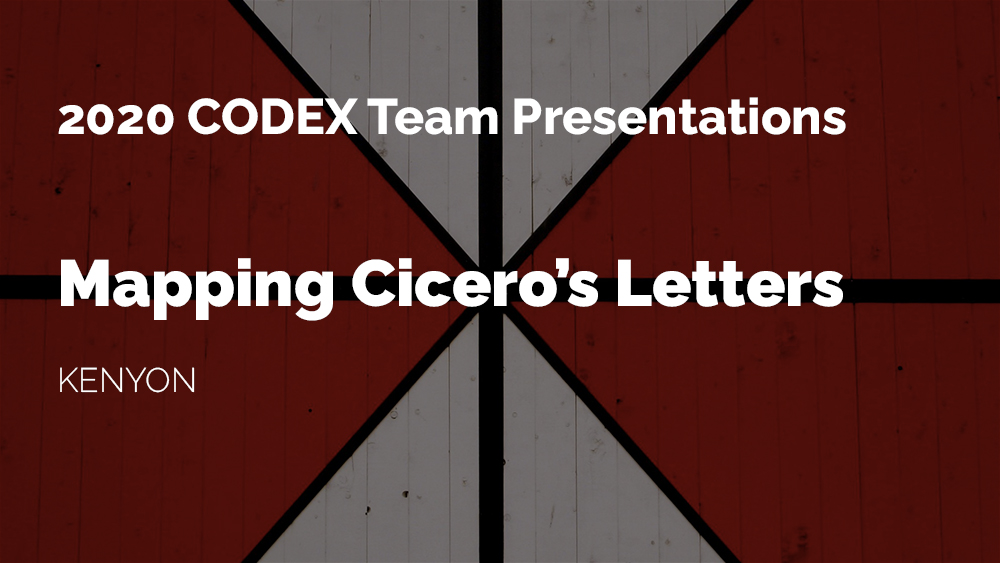About the 2020 CODEX Summer Institute
While the inaugural CODEX Summer Institute was originally envisioned as a space and time for faculty, staff, and students to come together in colocated collaboration spaces, the COVID-19 crisis has forced us to consider other ways that we can collaborate effectively while still taking advantage of the serendipity and energy that comes with working alongside colleagues outside one’s own institution.
In consultation with the members of the 2020 CODEX Summer Institute cohort, the institute shifted to an entirely virtual format in the interest of safety for all participants. While it was a different approach than we had originally envisioned, we were confident that with the excitement and engagement of the cohort, and perhaps a bit of flexibility and patience, we could conduct an effective and professionally rewarding experience for everyone.
2020 CODEX Teams
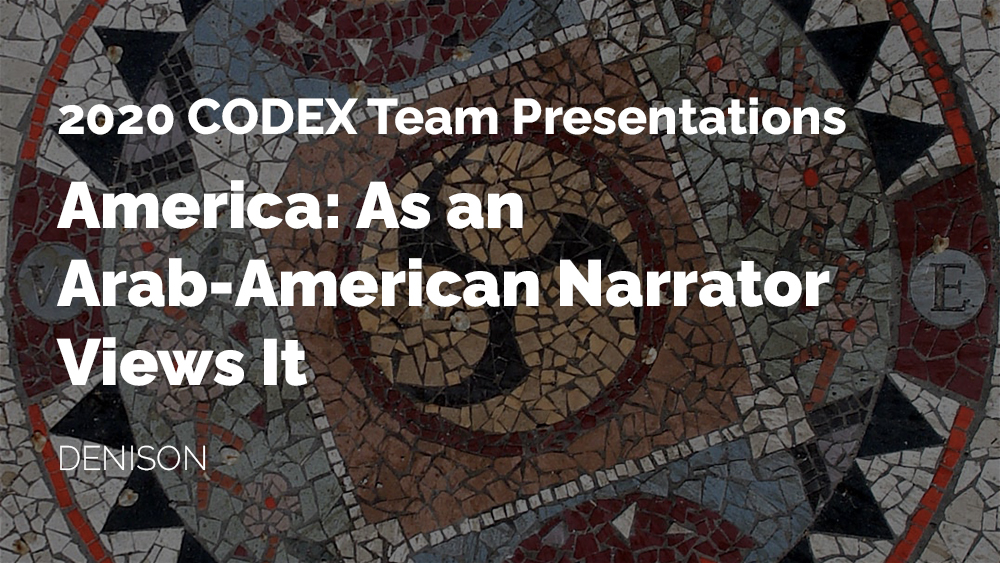
America: As an Arab-American Narrator Views It (Denison University)
Using the structure of a testimonial narrative, students will collaborate to film and conduct three interviews with a local Arab-American woman. The material from these interviews will be integrated into a course titled Culture of the Arab World in which students will develop multi-modal digital assignments based on the interviews. The intended outcome of this project is an open digital resource that documents the context surrounding the first wave of Arab immigrants who settled in America during the 19th century and became known later as Arab-Americans.
Team Members:
- Hanada Al-Masri (Lead)
- Cheryl Johnson
- Debra Andreadis
- Madelaine Baker ’21
- Eric Branigin ’23
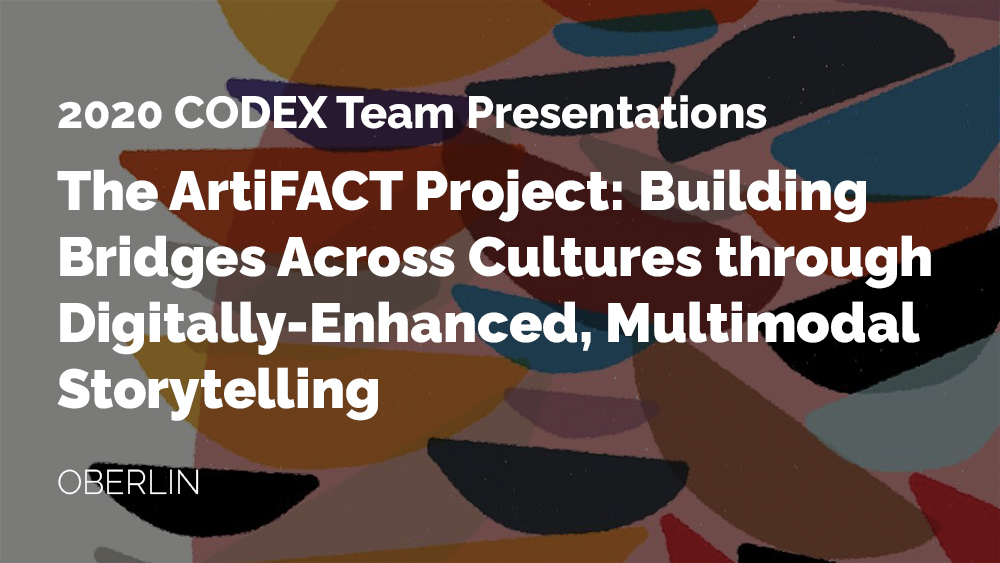
Resources:
- ArtiFACT Project (project website)
- ArtiFACT Collection (repository in Omeka)
- ArtiFACT Project Resources
The ArtiFACT Project: Building Bridges Across Cultures through Digitally-Enhanced, Multimodal Storytelling (Oberlin College)
ArtiFACT is a course-based workshop that pairs students with different communities and culminates in exhibits of co-created stories and objects. The current iteration of the project is focused on connecting ESOL (English for Speakers of Other Languages) students with native English speakers in nearby communities. The team will create an open digital repository to share the stories and objects created by ArtiFACT workshop participants and will develop tools and curricular materials that would enable educators at other institutions to participate in the project with limited investment of time and resource; for example, by giving them tools to embed project code from digital ArtiFACT exhibits into their own interactive websites.
Team Members:
- Abby Aresty (Lead)
- Larissa Fekete
- Abraham Reshad
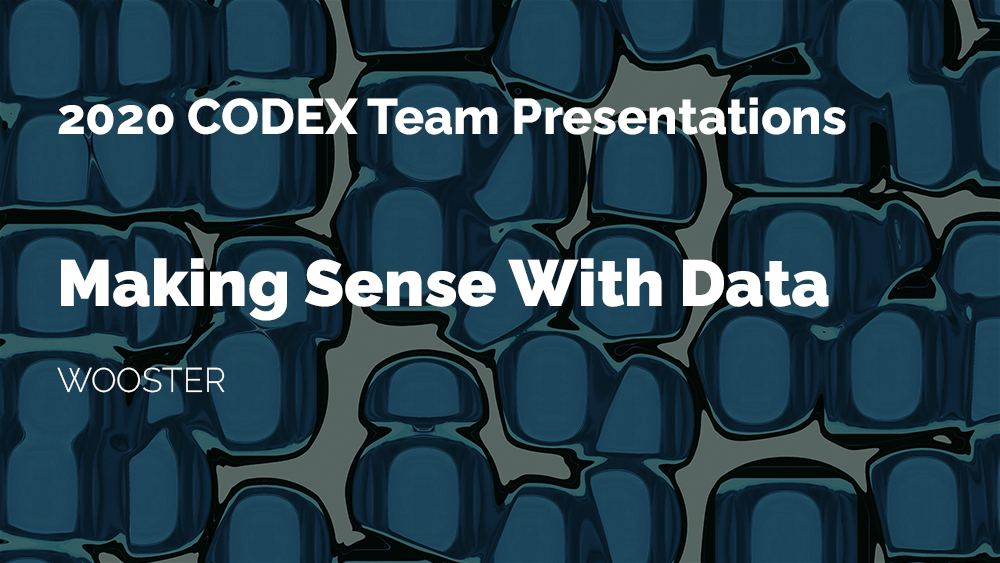
Resources:
- Example data sources for module:
- Lesson Outline (in progress)
Making Sense with Data (College of Wooster)
The team will develop course modules focused on digital and visual communication of data analysis for course integration for students in the humanities. These will be targeted to students in introductory courses and will be designed to give them a framework for making decisions about data. The course modules will be initially created in the Moodle learning management system and, once tested, the team intends to make these open for educators at other institutions.
Team Members:
- Katie Holt (Lead)
- Jennifer Hayward
- Megan Smeznik
- Annie Dempsey
- Zach Sharrow
Mapping Cicero’s Letters (Kenyon College)
The team will be working to revise and expand an existing digital mapping project that visualizes relationships between correspondents represented in the letters of the 1st century BCE Roman statesman Cicero. The expanded project will call on students to move beyond maps and develop tabular datasets and data visualizations based on geospatial information in the letters. The team will spend time enhancing documentation developed for the initial project that will guide students on how to identify, collect, format, and interpret data from this humanities corpus. That documentation, which includes workflow handouts, screencasts, and code examples, will be assembled together as a curricular package to accompany this course.
Team Members:
- Micah Myers (Lead)
- Joseph Murphy
- Alex Alderman
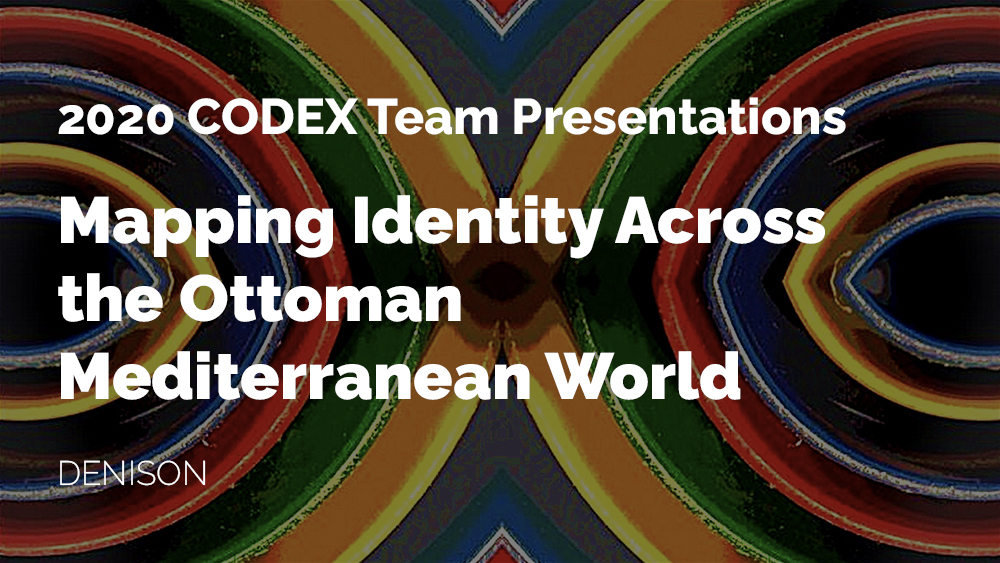
Resources:
- Draft of assignment description (in progress)
Mapping Identity Across the Ottoman Mediterranean World (Denison University)
Focused on the genre of “captivity narratives”, students will use digital mapping tools to trace movement of captives, in this case 17th century English seamen taken by Ottoman captors, and consider how the identities represented in their writings overlap or change based on their physical movement. The team’s work will focus on the design of an assignment which, at this stage, will emphasize digital mapping. They will also be considering the ways the data on which this course is based (i.e. data represented in captivity narratives) may lend itself to other modes of digital research and thereby serve as an example for other educators in the humanities seeking ways of bringing more digital humanities projects into their classrooms.
Team Members:
- Hoda Yousef (Lead)
- Donnie Sendelbach
- Trent Edmunds
- Andres Uriarte ’21
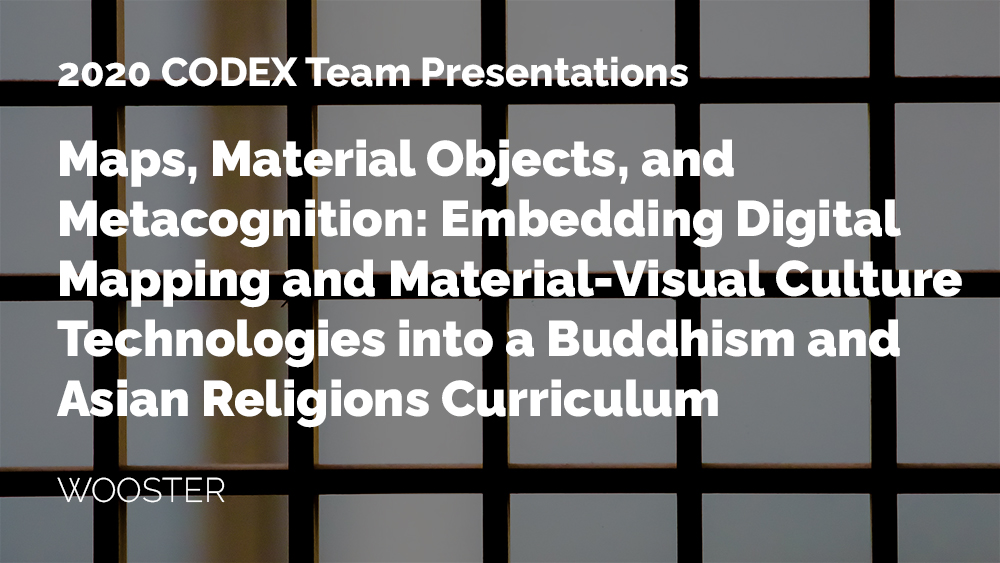
Resources:
Maps, Material Objects, and Metacognition: Embedding Digital Mapping and Material-Visual Culture Technologies into a Buddhism and Asian Religions Curriculum (College of Wooster)
The team will use digital mapping tools and practices in order to embed spatial, temporal, and material modes of learning into courses on Buddhism and Asian Religions. In addition to developing deeper experience with mapping technologies, the team will review course designs for up to seven courses and develop assignments designed to incorporate mapping. This project is at an early stage, but the team is eager to share their curricular materials once developed.
Team Members:
- Mark Graham (Lead)
- Emily Armour
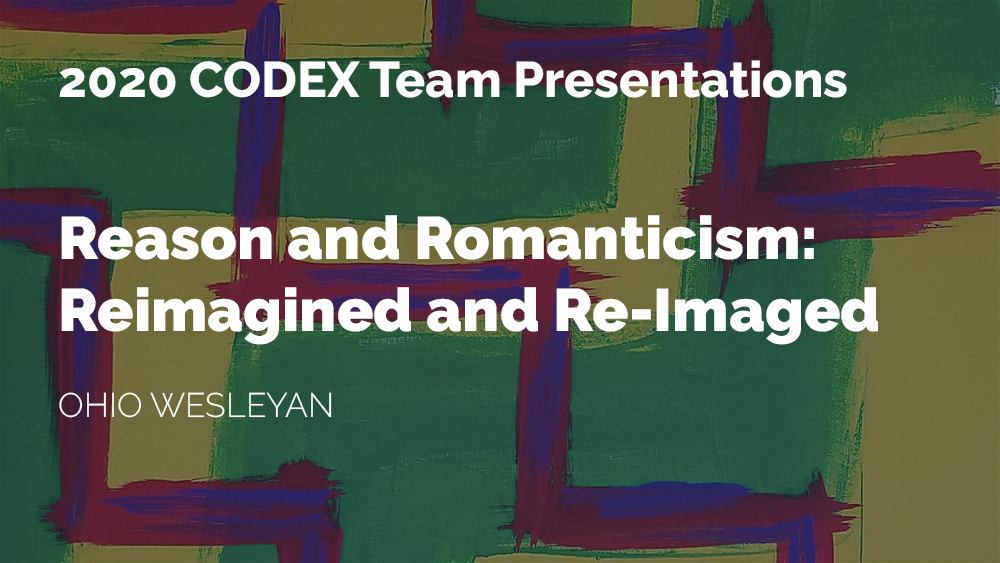
Reason and Romanticism: Reimagined and Re-Imaged (Ohio Wesleyan)
Students will conduct research on a body of letters written by prominent, though not widely celebrated, 18th century women writers. They will write and edit articles for Wikipedia pertaining to the selected writers and themes represented in their writings. Building on their research, students will develop a digital map or network visualization depicting the relationships represented in their correspondence. Students will contribute to this project over multiple semesters, thereby collaborating over time to create an open resource that gives voice to these marginalized female writers.
Team Members:
- Stephanie Merkel (Lead)
- Eugene Rutigliano
- Clavin Cleary
2020 CODEX Mentors
We were grateful to welcome three mentors to the 2020 CODEX Summer Institute who will lead workshops and offer consultations to teams relevant to their areas of expertise.
The 2020 CODEX Mentors were selected specifically in response to the needs of the cohort of teams attending the institute. This year’s mentors included:

Alex Alderman, Instructional Designer, Kenyon College
Profile: https://www.kenyon.edu/directories/campus-directory/biography/alex-alderman/
Resources:
- Workshop slide deck (Google Slides)
- Teaching Goals Inventory (University of Iowa)
- Projects mentioned in workshop:
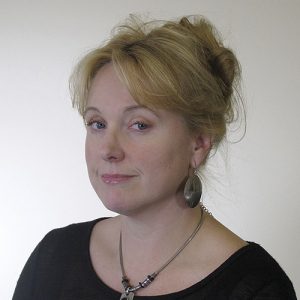
Janine Glathar, Digital Pedagogy and Scholarship Specialist, GIS & Spatial Thinking, Bucknell University
Profile: https://www.esri.com/about/newsroom/arcuser/spatial-thinking-spreads-across-bucknell-university/
Resources:
- Workshop slide deck (Google Slides)
- Course Examples:
- Humanities Visualization: Assignment, Data Dictionary, and Class Map
- American Economic History: Assignment, Storymap Templates and Samples, Sample Storymap, Data Dictionary
- Animals and Pandemics: Assignment & Templates, Storymap Template, Class Guide & Tutorial Videos, Data Dictionary, Student Template & Student Storymap
- ArcGIS Online Guide for CODEX Workshop
- Cascade Storymap Template
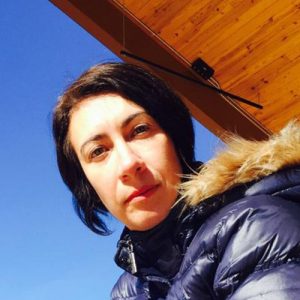
Sundi Richard, Assistant Director of Digital Learning, Davidson College
Resources:
- Workshop slide deck (Google Slides)
- Digital Design course website
- Student-developed strategic plan and digital project design
2020 CODEX Summer Institute Schedule
9:00am – 10:00am
- Welcoming remarks from CODEX Summer Institute Co-Directors Ben Daigle and Heather Fitz Gibbon
- Review of the daily schedule and plans for the week
- Team Sharing: each team will share their course/project proposals and the goals they have set for the week.
10:00am – Noon
Team time
This is an open time for team members to work together or individually on their projects. Teams may choose how best to conduct their work during this open session. Some may choose to meet for the entire period while others may choose to meet briefly to discuss individual responsibilities before proceeding with individual contributions and communicating via Slack or email. Teams may use their preferred communication tools (e.g. Google Meet, Microsoft Teams, Zoom, Slack) during this period.
Noon – 1:30pm
Lunch on your own
Throughout the week, optional birds-of-a-feather lunches will be offered over Zoom for those who are interested.
1:30pm – 3:30pm
Workshop #1
Topic: Practical considerations for designing project-based digital assignments and incorporating them into a course
Mentor: Sundi Richard, Assistant Director of Digital Learning, Davidson College
3:30pm – 4:30pm
Flexible period
This time may include follow-up consultations with the workshop facilitator, additional pop-up workshops offered by attendees in response to needs of their team or the larger community, additional team time, or just individual work time.
4:30pm – 5:15pm
CODEX Forum
Forums are opportunities for the larger cohort to discuss topics and issues of importance to their projects or to digital pedagogy and scholarship in general.
9:00am – 9:30am
- Morning announcements and review of the schedule
9:30am – Noon
Team time
As in the previous day, this is an open time for teams to work together or individually on their projects. Teams may also use this time to consult with one or more CODEX Mentors on project-specific questions.
Noon – 1:30pm
Lunch on your own
1:30pm – 3:30pm
Workshop #2
Topic: Creating maps and other spatial representations of data for course projects
Mentor: Janine Glathar, Digital Pedagogy and Scholarship Specialist for GIS & Spatial Thinking, Bucknell University
3:30pm – 4:30pm
Flexible period
This time may include follow-up consultations with the workshop facilitator, additional pop-up workshops offered by attendees in response to needs of their team or the larger community, additional team time, or just individual work time.
4:30pm – 5:15pm
CODEX Forum
Again, forums are good opportunities for all members of the cohort to discuss topics/concerns related to their work.
9:00am – 9:30am
- Morning announcements and review of the schedule
9:30am – Noon
Team time
As in the previous days, this is an open time for teams to work together or individually on their projects. Teams may also use this time to consult with one or more CODEX Mentors on project-specific questions.
Noon – 1:30pm
Lunch on your own
1:30pm – 3:30pm
Workshop #3
Topic: Developing effective assessments for students’ contributions to digital projects
Mentor: Alex Alderman, Instructional Designer, Kenyon College
3:30pm – 4:30pm
Flexible period
This time may include follow-up consultations with the workshop facilitator, additional pop-up workshops offered by attendees in response to needs of their team or the larger community, additional team time, or just individual work time.
4:30pm – 5:15pm
CODEX Forum
9:00am – 9:30am
- Morning announcements and review of the schedule
9:30am – Noon
Team time
As in the previous days, this is an open time for teams to work together or individually on their projects. Teams may also use this time to consult with one or more CODEX Mentors on project-specific questions.
Noon – 1:30pm
Lunch on your own
1:30pm – 3:30pm
Workshop #4
Topic: This period is reserved for a pop-up workshop if any are proposed during the week. If no pop-ups are proposed, this time may be used to finalize team projects in preparation for team presentations.
3:30pm – 4:30pm
Flexible period
This time may include follow-up consultations with the workshop facilitator, additional pop-up workshops offered by attendees in response to needs of their team or the larger community, additional team time, or just individual work time.
4:30pm – 5:15pm
CODEX Forum
9:00am – 9:15am
- Morning announcements and review of the schedule
9:15am – 10:30am
Team time
Teams will wrap-up their week’s work and finalize presentations on their progress for the final CODEX Summer Institute Team Presentations
10:30 – Noon
2020 CODEX Summer Institute Team Presentations
Teams will present their progress and share their plans and timelines for carrying forward their courses and projects in subsequent semesters.
Concluding remarks by CODEX Summer Institute Directors Ben Daigle and Heather Fitz Gibbon
Consultations and Virtual Office Hours
Mentors were available by appointment for consultations during the team working periods. Participants were encouraged to direct message mentors in the OH5 CODEX Slack to arrange a consultation.
Co-Directors Ben Daigle and Heather Fitz Gibbon were also available during virtual office hours between 10:30am – 4pm Monday through Thursday during the institute.
